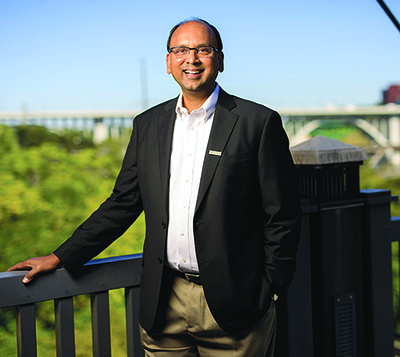Town’s carbon fiber guru shares research, works with UT, ORNL

“We have an eco-system of advanced materials and manufacturing, where we have joined programs with the University of Tennessee and Oak Ridge National Laboratory,” he said.
Penumandu, who moved to Farragut in 2001, is part of a group called Joint Institute for Advanced Materials, collaboration between UT and ORNL.
“(Carbon fiber composite materials) has a lot of uses,“ he said. “Its main advantages (are) it has strength, stiffness and what we call how much the material performs.
“It’s far superior to steel but weighs only one-fifth of it,” Penumadu added. “The material doesn’t corrode, so there are a lot of advantages of having a light-weight material that’s stronger and performs better than steel.”
The material has been used for aircraft structures and high-end bicycles for a long time, but because of the expense of materials, the applications have been limited to (those) applications, he said.
However, with new technologies coming out, “we are developing newer carbon fiber composite materials, so we can use them in civil engineering structures and manufacturing, bridges and things like that,” Penumadu said.
“I think (research) is going to have an effect on many, many fields,” he added. “The major challenge is to reduce the cost of the material and have a new supply chain for making these materials in the U.S.
“I think it’s going to impact infrastructures It’s going to further augment usage of these materials, (such as) making new cars — especially the electric (auto) manufacturing now. There are many areas in automotive when you need certain properties — functional properties … lightweight, durable and multifunctional properties.”
Penumadu brought his research to UT because “the strength of the material can be manufactured in the eco-system we have here in East Tennessee,” the scientist said. “
The partnership between Oak Ridge National Labs and University of Tennessee was a big attraction for me,” he added.


